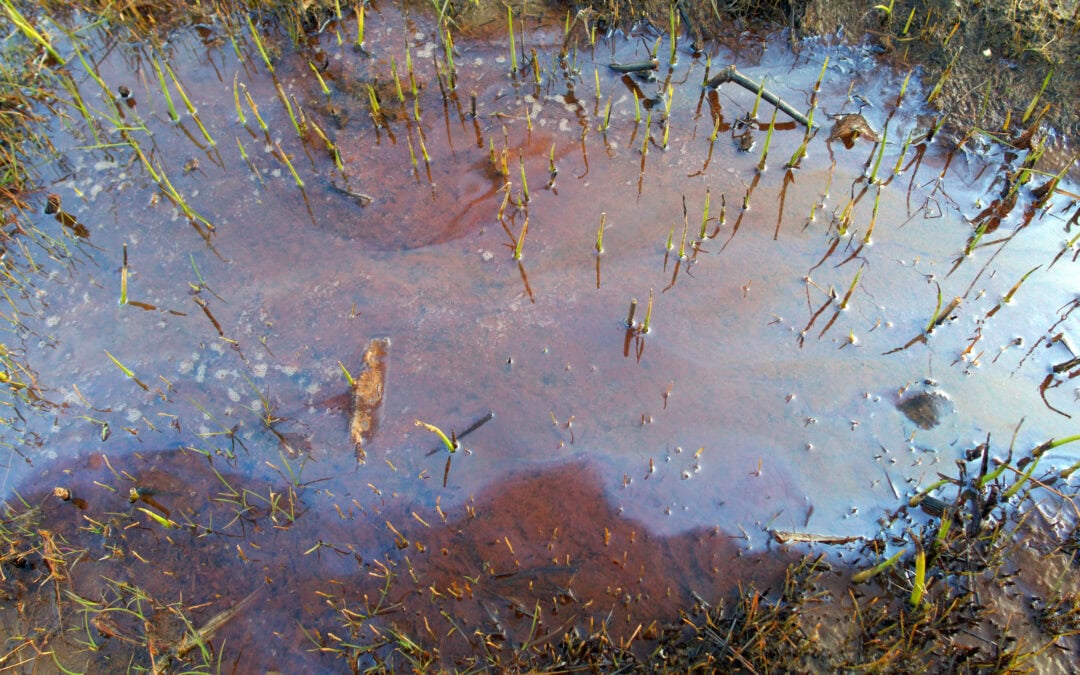If you own land in Louisiana, chances are your property has some connection—direct or indirect—to the state’s long history of oil and gas operations. For many families, that history has meant economic opportunity. For others, it has left behind land or groundwater pollution that reduces property value, creates safety risks, and jeopardizes a family legacy.
That’s where Legacy litigation comes in. Legacy lawsuits are legal claims that allow landowners to hold oil and gas operators accountable for failing to restore property after drilling, exploration, or production activities associated with old oil and gas operations.
Unfortunately, myths and misinformation often keep landowners from asserting their rights. At Talbot, Carmouche & Marcello, we’ve heard every misconception imaginable—from “you’ll never win” to “this is just a money grab.” These things couldn’t be further from the truth.
Here, we separate fact from fiction so you can make informed decisions about protecting your property.
Myth 1 – Only Large Landowners Can File a Claim
Fact: You don’t need thousands of acres or a massive farming operation to qualify. Small and mid-size landowners have the same rights under Louisiana law.
What matters is whether oilfield activities—such as drilling, pits, or pipelines—took place on your land, and whether those operations caused contamination that was never cleaned up. Courts look at:
- Evidence of contamination in soil or water.
- The operator’s history of activity on the property.
- Lease obligations that may have required restoration.
In short, it’s not about size—it’s about impact. Whether you own 20 acres or 2,000, you may be eligible to bring a Legacy claim.
Myth 2 – Lawsuits Always Yield Jackpot Awards
Fact: Legacy litigation is not about “hitting the lottery.” The goal of Legacy litigation is about recovering amounts due to environmental damages – not creating windfalls.
Under Louisiana’s Act 312 process, courts oversee cleanup plans and direct much of the recovery to remediation efforts. Landowners may also recover damages for loss of use and reduction in property value, but claims are tied closely to actual harm.
In addition, certain laws cap non-cleanup damages. That means while landowners can secure meaningful compensation, outcomes are not the “jackpot awards” that oil companies sometimes suggest in the media.
Myth 3 – You’ll Owe Big Legal Bills Up Front
Fact: At Talbot, Carmouche & Marcello, cases are handled on a contingency fee basis.
That means:
- You pay no upfront fees.
- We advance the costs of hiring environmental experts, filing claims, and managing court expenses.
- We only collect a percentage if we successfully recover compensation for you.
This model makes it possible for landowners of all backgrounds to hold polluters accountable.
Myth 4 – Oil Companies Always Win in Court
Fact: Landowners are far from powerless. In fact, plaintiffs often prevail when Legacy cases are adjudicated.
Louisiana courts have repeatedly shown that they will hold polluters accountable. Landmark victories—including the Corbello decision, which required operators to fund full remediation even when costs exceeded property value—demonstrate the courts’ willingness to enforce lease obligations and protect landowners.
Oil companies have deep pockets, but the law is clear: they must honor their responsibilities.
Myth 5 – The Deadline Doesn’t Matter
Fact: The deadline is critical. Beginning September 1, 2027, new rules under Act 458 will make it much harder for landowners to succeed.
Key changes include:
- A shift to a “clear and convincing” burden of proof, which is significantly more difficult than the current “preponderance of the evidence” standard.
- Cleanup guided by risk-based standards, which may allow contamination to remain in place if regulators deem it non-threatening to human health.
- New caps on damages and potential cost shifting against landowners.
If you wait until after September 1, 2027, your rights will be severely limited. Acting now preserves the stronger protections currently available.
Myth 6 – Cleanup Isn’t Guaranteed Even If You Win
Fact: Louisiana law requires that court-approved remediation plans be developed and carried out. Winning a case isn’t just about compensation—it’s about restoring your land.
Today, courts review cleanup proposals submitted by both landowners and operators, often with input from the Department of Energy and Natural Resources. Judges select the plan that best ensures meaningful remediation.
After Act 458 takes effect, cleanup will shift to risk-based standards, which may be less thorough. That’s another reason acting before 2027 is so important—you retain the right to demand full remediation, not just a partial fix.
Moving Forward
Legacy litigation is one of the most misunderstood areas of Louisiana law. Let’s recap the myths we’ve dispelled:
- Size doesn’t matter: Small landowners qualify.
- No jackpots: Most recoveries fund cleanup.
- No upfront costs: Attorneys advance expenses.
- Landowners win often: Courts enforce accountability.
- Deadlines matter: Act before September 1, 2027.
- Cleanup is real: Court-approved plans ensure restoration.
When you know the facts, it’s clear that Legacy litigation is a powerful tool for protecting your land, your property value, and your family’s future.
At Talbot, Carmouche & Marcello, we’ve dedicated decades to standing up for Louisiana landowners. If you suspect your land may be contaminated, don’t let misinformation keep you from acting.
Contact us today for a free claim review. We’ll evaluate your situation, explain your options, and help you decide the best way forward—before the law changes in 2027.
Protect your land. Protect your rights. Protect your Legacy.

